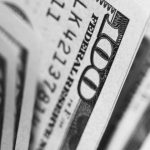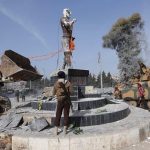In Turkey, the campaign against militants seeking Kurdish self-rule has led to significant pressure – and often discrimination – against inhabitants of the country’s predominantly Kurdish regions, particularly the largest Kurdish-majority city of Diyarbakir.
The discrimination against the people of Diyarbakır reaches an extent that will surprise many: it also includes their vehicle license plates.
A comedy film in Turkish has even been made about the phenomenon of Diyarbakir license plates, denoted by the number 21, being pulled over and eyed with suspicion.
In the film, There’s a Fire, a firefighter from the Black Sea town of Trabzon travels to Diyarbakir in the southeast of Turkey to pick up a firetruck gifted by the municipality. On the drive back north, the police stop and search the truck several times after receiving reports from concerned citizens.
Even though in Diyarbakir one can see license plates from all over the country, driving in and out without issues, the same cannot be said with those cars with the 21 in their plates. Those cars face extra scrutiny in other cities due to the unspoken prejudice that they may pose a security threat.
The Turkish state has been fighting Kurdish militants from the Kurdistan Workers’ Party (PKK) since it launched a separatist uprising in the 1980s. A stigma has existed against Kurds, especially from the southeast, where Diyarbakir is the cultural capital of the ethnic minority.
Ibrahim Dönmez has been a cargo truck driver for a private firm for 42 years making deliveries out of Diyarbakir. “We suffer lots of issues,” he says. “I could spend years telling you.”
Whenever he reaches security checkpoints outside of Diyarbakir, he sees officials typically waving on vehicles from other provinces, like Ankara, Mersin, or Hatay.
“But when it comes to a vehicle with a Diyarbakir plate, we’re stopped at the checkpoint,” says 62-year-old Dönmez. “We’re not opposed to police and soldier checks, but they should stop the other vehicles, too.”
The prejudice hurts him. “We experience this everywhere,” he said, adding that the attitude of the government and media toward Kurds does not help.
Vehicles with Diyarbakir plates also run a higher risk of vandalism, said Dönmez, who has seen vehicles from the Kurdish city that have had their windows broken and been scratched.
Serhat Murat Güler, a salesman at a large car dealer, says that drivers prefer not to don “21” plates in order to avoid trouble. He calls it “21 plate phobia.”
Meanwhile, an insurance agent in Diyarbakir, Ömer Moran, said that insurance prices are kept higher in the southeast than in the west due to the “terror risk”.
He said that many people use addresses in western provinces to avoid having a 21 plate.
“At this point, many people do not want to buy a 21 plate or use one,” he said. “They bring it to the point where we hate using a 21 plate.”
Source: Ahval News



